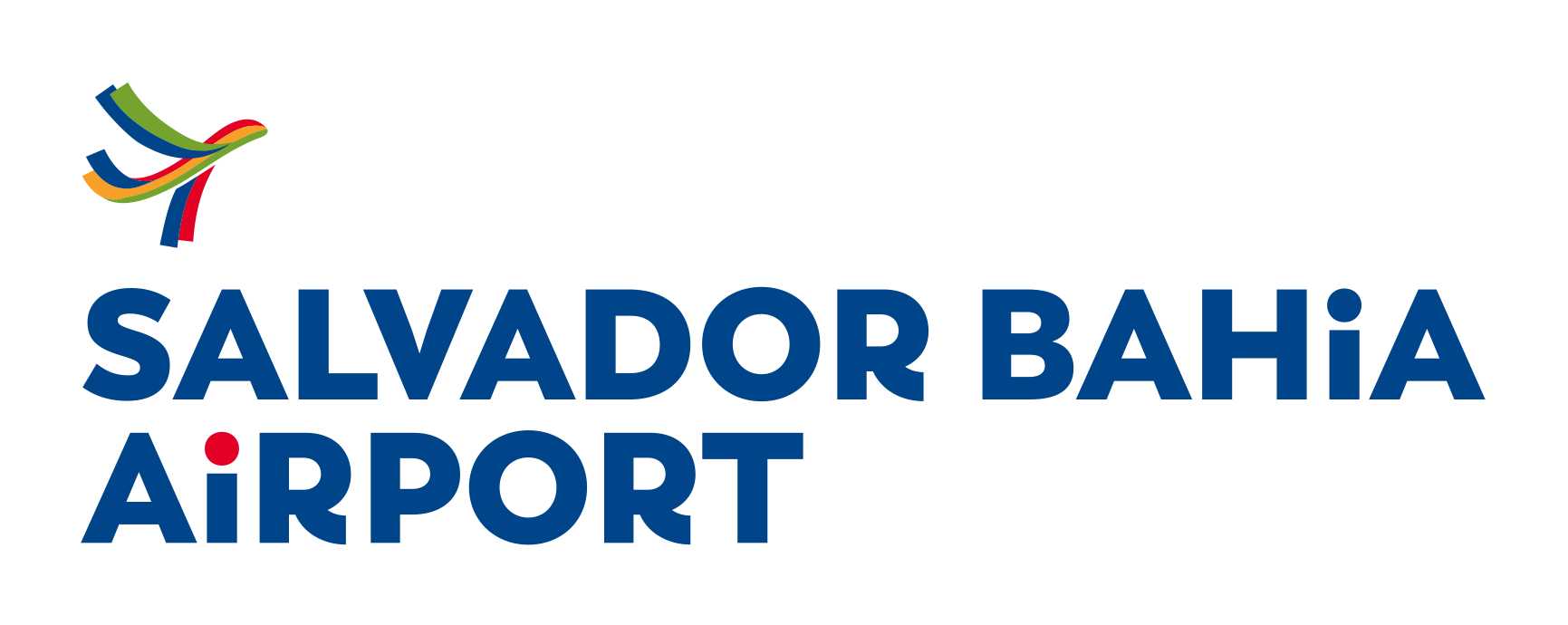Environment
Committed to Protecting the Planet and a Sustainable Future
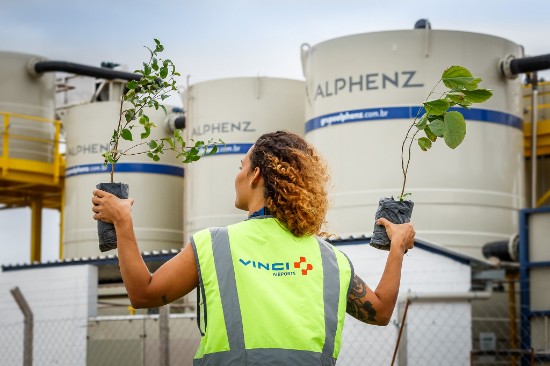
Flying Toward a Sustainable Future
We are committed to reducing the environmental impact of our operations and promoting a more sustainable future. We have implemented several measures to minimize our environmental footprint, from reusing water to generating clean energy through our solar plant. As a result, we were recognized by ANAC as the “Most Sustainable Aerodrome in Brazil” for three consecutive times and received the Carbon Accreditation Certification by the International Airport Council (ACI), in addition to the ISO 14001 certificate that attests to the excellence of our Airline System. Environmental Management. Our commitment to sustainability is a shared responsibility with our community, partners and stakeholders, and we are committed to working together to promote a more sustainable future for everyone.
Together for Positive Mobility
Leading environmental change
By launching its environmental strategy in 2015—the first of its kind in the airport sector—VINCI Airports placed environmental transition at the core of its strategic priorities. As part of the VINCI Airports network, Salvador Bahia Airport is committed to following a specific roadmap that includes biodiversity protection, water consumption control, waste recycling, electricity consumption reduction, and the use of renewable energy. Achieving environmental excellence is essential for aviation and airports, and we are dedicated to playing our part in this transformation, contributing to a more sustainable future for all.
Our environmental initiatives
Driving the transition toward a greener and more responsible future
As established in the environmental policy of Salvador International Airport, we are committed to managing electricity consumption and reducing it through energy efficiency, while prioritizing the use of clean or lower-emission energy sources. Our goal is to reduce electricity consumption by 5% by 2030.
To support this commitment, a 4,215 kWp solar plant was installed at the airport, 100% of conventional lamps were replaced with LED lighting, and older equipment was upgraded to more efficient systems.

Our current goal is to achieve NET ZERO status by 2030. As defined in our environmental policy, Salvador International Airport is committed to mapping and reducing greenhouse gas emissions, meeting the requirements for obtaining and maintaining Airport Carbon Accreditation (ACA).
With this commitment, we achieved ACA Level 3 certification, reaching an 87% reduction in emissions.
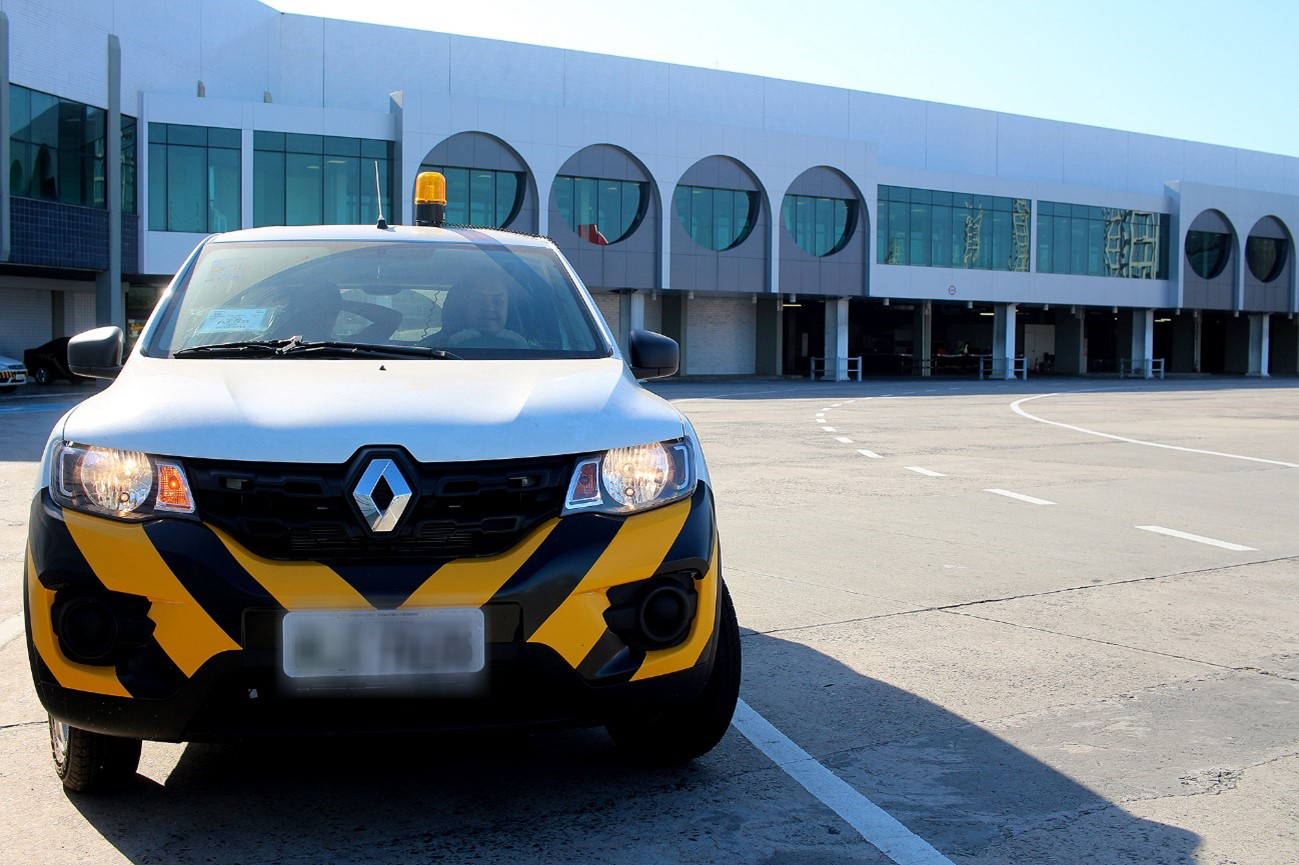
As part of its environmental policy, Salvador International Airport is committed to reducing water consumption, reusing treated effluent for non-potable purposes, and developing new water recovery alternatives. To support this commitment, we have set a goal to reduce water consumption by 50% by 2030.
Salvador Bahia Airport is the first Zero-Effluent airport in Brazil. All wastewater generated is treated at an on-site Wastewater Treatment Plant, and 100% of the treated water is reused in toilets and other non-potable applications. In addition, water recovered from air-conditioning systems is reused, and aerator nozzles were installed on terminal faucets to reduce water flow without affecting user experience.
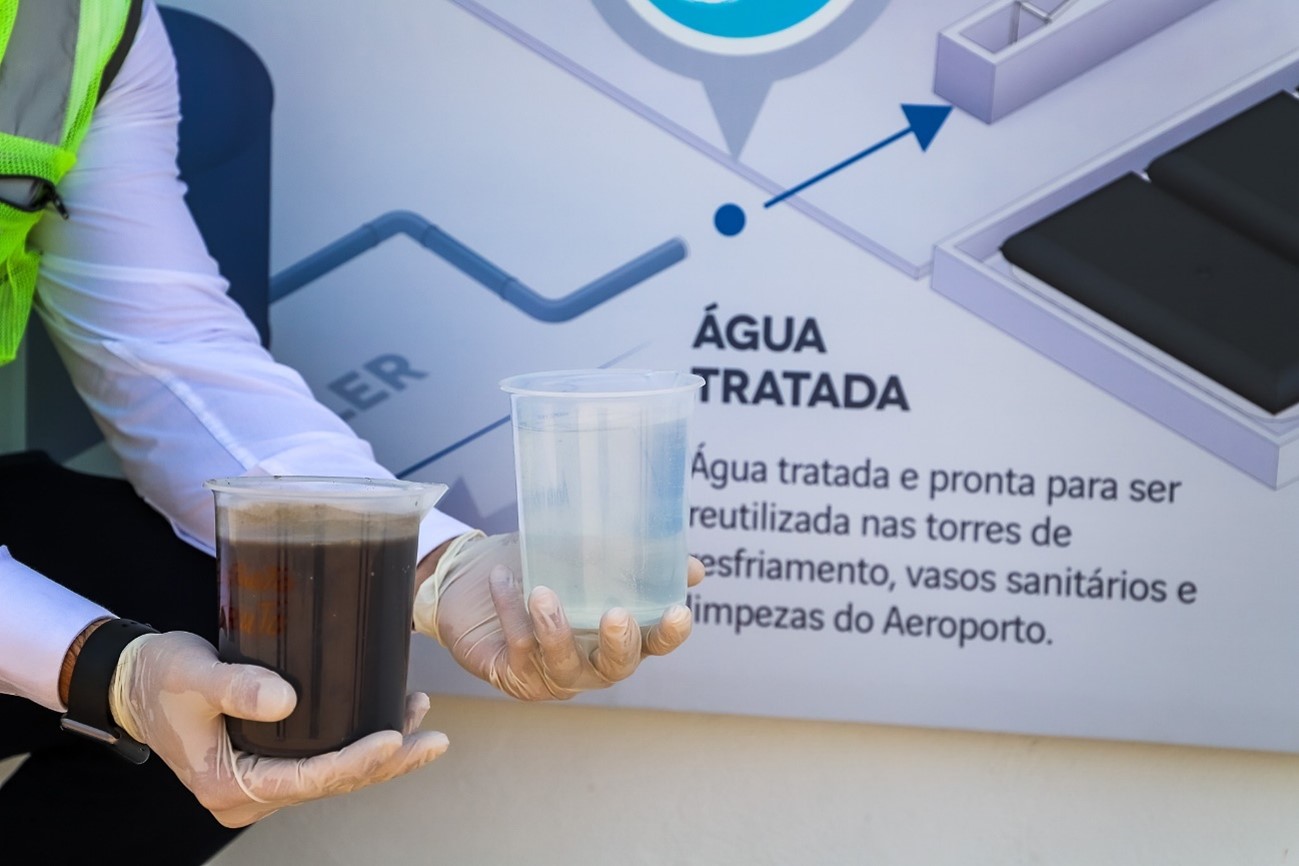
As outlined in the environmental policy of Salvador International Airport, we are committed to reducing solid waste by adopting Circular Economy principles and monitoring the life cycle of materials.
We are the first Zero-Landfill airport in Brazil. 100% of our solid waste is collected, sorted at our Waste Center, and sent to the appropriate destination, where it is used as raw material for recycling or for energy and cement production. We are committed to the circular economy and to reducing waste generation by 10% by 2030.
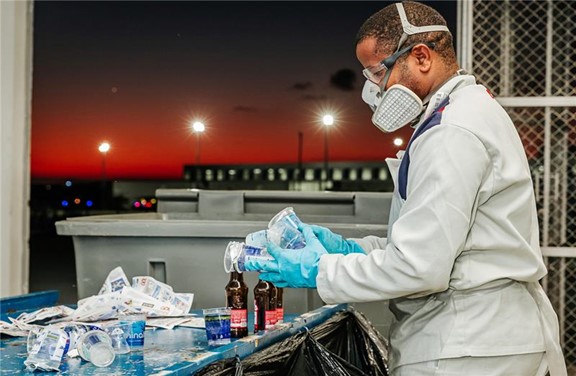
The aviation sector faces significant environmental challenges and must operate responsibly. In 2016, VINCI Airports became the first airport operator to adopt an international environmental strategy.
The Group has commitments that shape our policies and culture, with sustainability at the forefront. Accordingly, Salvador International Airport is responsible for fulfilling the environmental commitments set by VINCI Airports, as outlined in its Environmental Policy and Decarbonization Policy.
We are committed to reducing atmospheric pollutant emissions to prevent harmful effects on human health and the environment. To support this, air quality is monitored every four months to ensure compliance with established indicators.
Salvador International Airport is committed to reducing atmospheric pollutant emissions and aims for a 2% reduction in the Air Quality Index (AQI) ≤ 40, as established by the Environmental Protection Agency, by 2030.
Atmospheric Emissions Monitoring – SBSV

Salvador International Airport implements the Aircraft Noise Zoning Plan (PZR) and has an Aircraft Noise Management Committee (CGRA), which includes public agencies, internal staff, neighborhood associations, and airlines. The committee addresses issues such as noise complaints, communication with authorities and the public, identification of incompatible activities, and suggestions for improvements through indicators for land-use planning and restrictions, in compliance with RBAC 161.
We are committed to adhering to the Brazilian Civil Aviation Regulation No. 161, Amendment No. 03, and aim to reduce aircraft noise, targeting a 1% reduction in the affected area by 2030.

